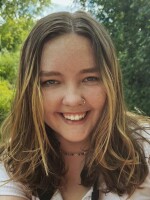Derek Mosley joins Lake Effect to share the historical accomplishments of Black pioneers and groundbreakers in Wisconsin. This month, Mosley begins by detailing the life of Mary Ann Labuche — the first doctor in Wisconsin.
Mary Ann Labuche, or “Aunt Mary Ann” as she was commonly known, was born into enslavement and married three times throughout her life. Until Fort Crawford was built in 1816, she held the title of the only doctor in Wisconsin.
Common in enslaved and Indigenous populations, Labuche utilized “healing arts” as a medical practice. She concocted various potions, also known as yarb drinks, using flowers and herbs she could find. As a result, people traveled statewide to seek out her medical treatments and healing potions.
“Even when a doctor, a surgeon came in 1816 to build Fort Crawford and Prairie du Chien, people still sought her out for her yard potions, and that's how she became the first doctor in the state of Wisconsin,” says Mosely.
Mosely continues with a remarkable account during an altercation between Prarie du Chein and the Winnebago Tribe in 1827. Labuche’s one-year-old granddaughter was stabbed and scalped in the conflict, and her medical practices saved the child's life.
“She knew enough to take a silver plate and place that plate on the head of this child. And she knew that silver was a potent antibacterial agent, and the skin was able to heal back over the head in the brain, and it kept bacteria out. The silver kept bacteria out,” says Mosley.
Other trailblazers, Moseley notes, were three African American men who founded Lake Ivanhoe in the 1920s. The three men often saw their white counterparts vacationing in Lake Geneva and wanted to purchase property on the lake. However, due to racial discrimination, no real estate agent was willing to sell property to them until they found Ryan Farm, which was seven miles outside of Lake Geneva. Finally, a white real estate agent Ivan Bell sold them the three-acre property, and the men decided to found their own “Black Lake Geneva.”
“So in 1926, they built this huge pavilion, it was called in the head of a ballroom. They invited Cab Calloway, the famous bandleader from the Cotton Club in Harlem, and he came out, and it was a great event, and Black families would come up. They spent their summers up in Wisconsin and Lake Ivanhoe, and it became the Black Lake Geneva,” says Mosely.
To this day, the streets within Lake Ivanhoe are named after famous Black Americans such as Frederick Douglas, Crispus Attucks, and Chicago founder Jean Baptiste Point du Sable. However, the fall out of the Great Depression hit shortly after that, which drained the founders and other families of the means to afford to spend time in Lake Ivanhoe. The families did not return until the 1960s.
Today, around 461 residents make up Lake Ivanhoe, 9% of which are African Americans. This summer, the Lake will be gaining historical status, which will be celebrated with a barbecue later this August.
“Of the 600 historical markers in the state of Wisconsin, only seven are dedicated to African American history. Less than seven are dedicated to the histories of Latinos, Asians and Indigenous populations of Wisconsin. So it's a great step for Lake Ivanhoe. But as a state, we have to do more to tell more of those stories,” says Mosley.
Editor's note: This story was originally published August 1, 2022.
Have a story idea you'd like to hear on Lake Effect? Share below.
_






